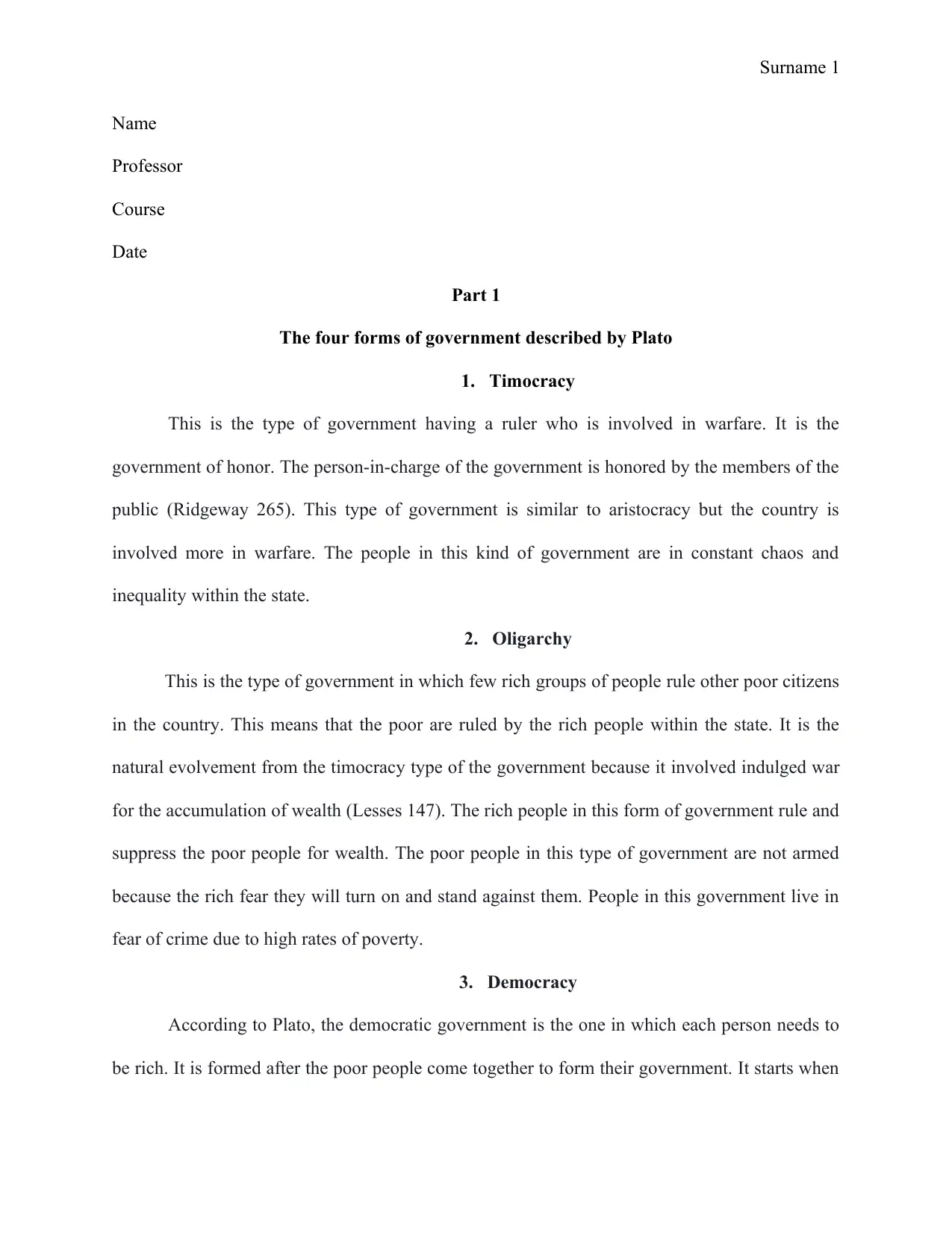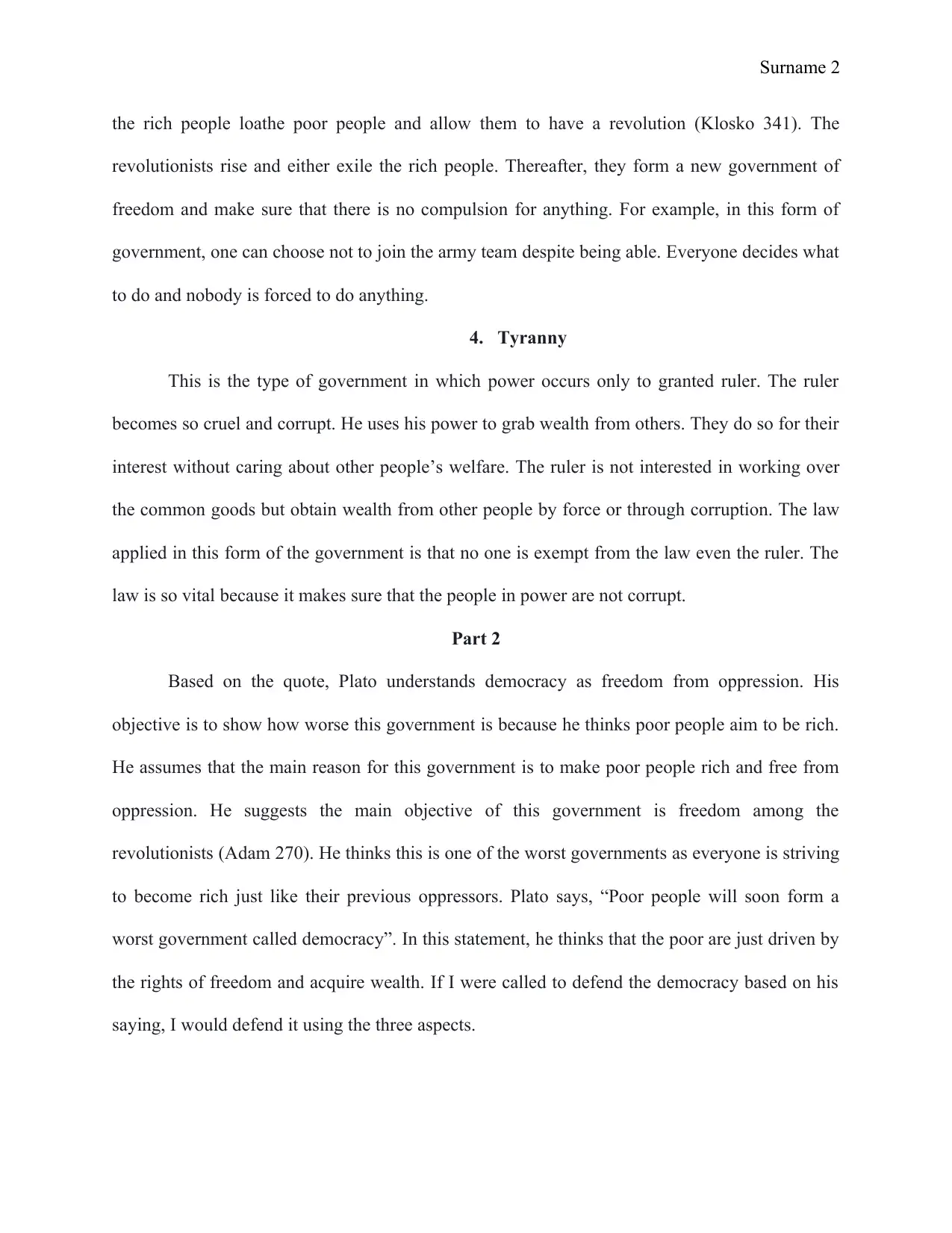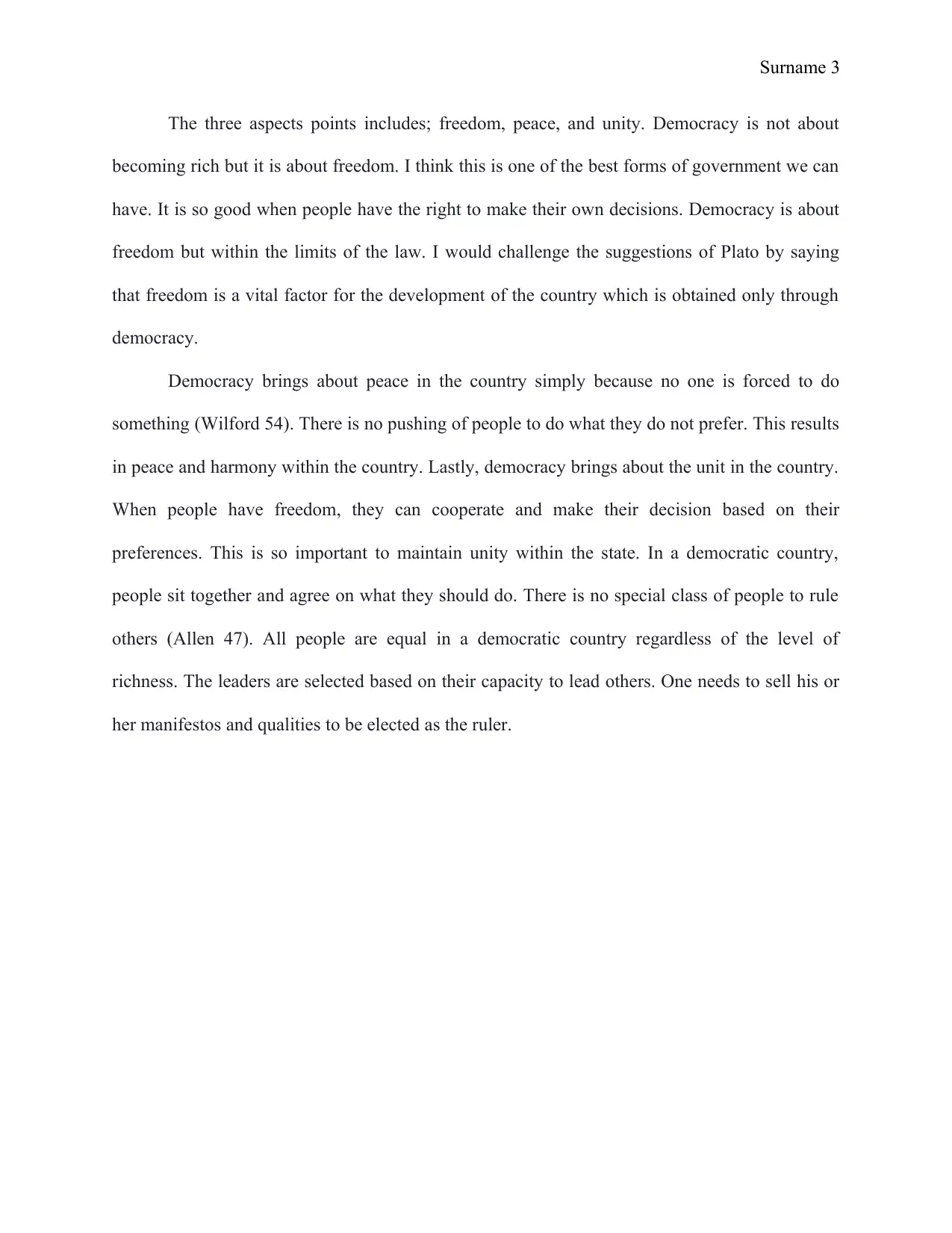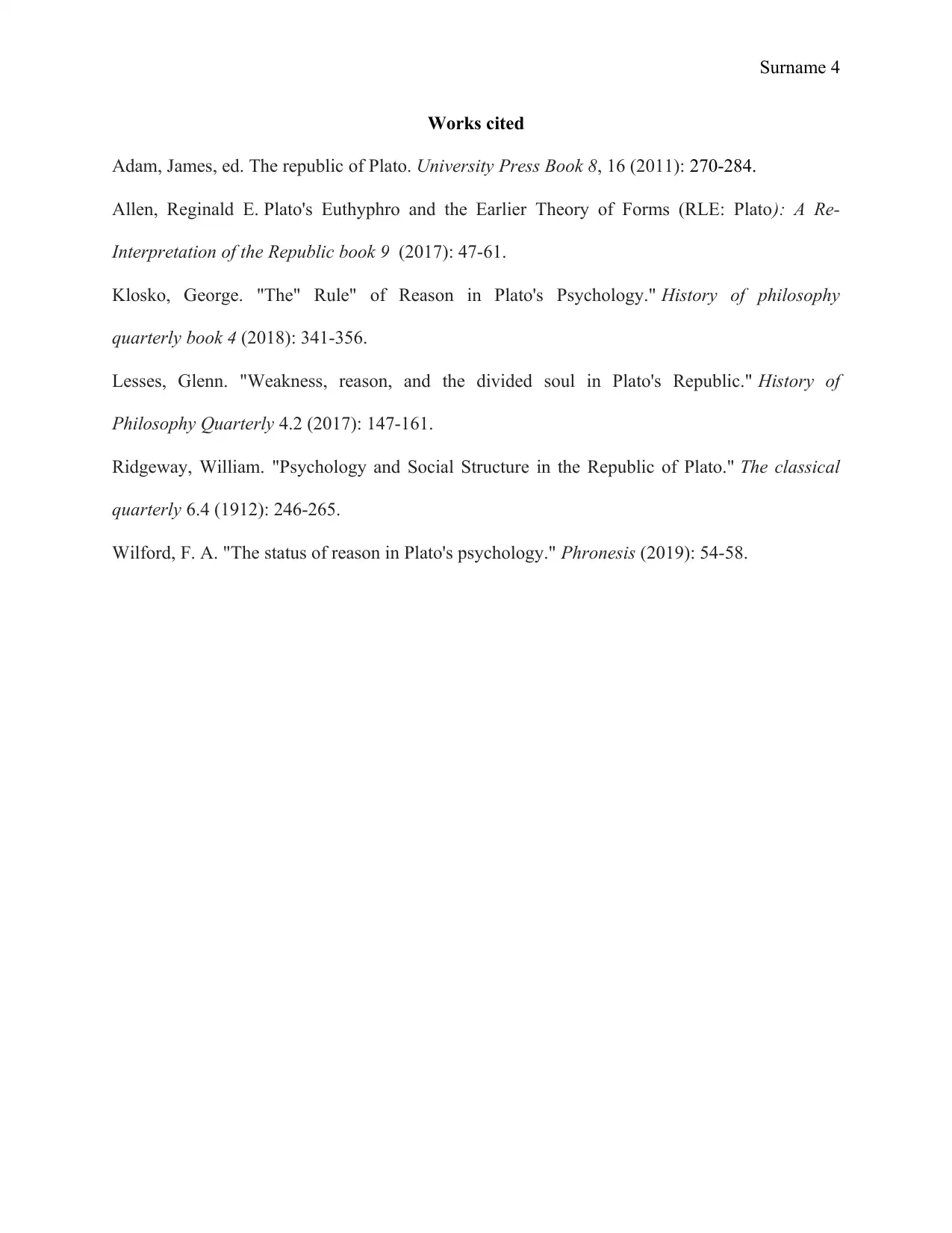Plato's Republic: Examining Forms of Government and Associated Persons
VerifiedAdded on 2022/10/05
|4
|1020
|281
Homework Assignment
AI Summary
This assignment delves into Plato's analysis of four distinct forms of government—Timocracy, Oligarchy, Democracy, and Tyranny—as presented in Books 8 and 9 of The Republic. For each form, the assignment outlines the key features of the governmental system and the character of the person associated with it, highlighting how each represents a decline from Plato's ideal society. Furthermore, the assignment addresses Plato's critique of democracy, focusing on his objections and underlying assumptions. It defends democracy based on the principles of freedom, peace, and unity, challenging Plato's view that it merely aims to enrich the poor. The analysis emphasizes that democracy fosters individual decision-making within legal boundaries, promotes peace by avoiding coercion, and encourages unity through cooperation and equality, ultimately arguing that these aspects are vital for a country's development.
1 out of 4











![[object Object]](/_next/static/media/star-bottom.7253800d.svg)